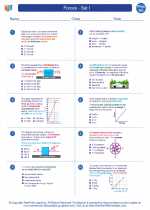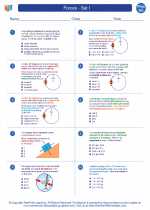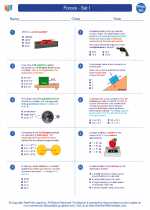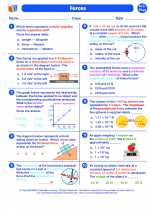Meteorology
Meteorology is the scientific study of the atmosphere, including the processes and phenomena that occur within it. It is a branch of the atmospheric sciences and a subdiscipline of both physics and environmental science.
Key Concepts in Meteorology
- Atmospheric Composition: Understanding the composition of the Earth's atmosphere, including the roles of different gases such as nitrogen, oxygen, and carbon dioxide.
- Weather Systems: Studying the formation and behavior of weather systems such as high and low-pressure systems, fronts, and air masses.
- Cloud Formation: Exploring the processes that lead to the formation of different types of clouds, and their impact on weather patterns.
- Climate: Investigating long-term patterns and trends in weather, including factors such as temperature, precipitation, and wind patterns.
- Extreme Weather Events: Understanding the physics behind phenomena such as hurricanes, tornadoes, thunderstorms, and blizzards.
- Remote Sensing: Using technologies such as satellites and radar to observe and monitor atmospheric conditions.
- Forecasting: Applying scientific principles to predict future weather conditions and patterns.
Study Guide for Meteorology
To successfully study meteorology, it's important to have a strong foundation in the following areas:
- Physics: Understanding fundamental principles of physics such as thermodynamics, fluid dynamics, and the behavior of gases.
- Mathematics: Developing proficiency in mathematical concepts such as calculus, statistics, and algebra, which are crucial for analyzing atmospheric data and making predictions.
- Environmental Science: Gaining knowledge of Earth's interconnected systems, including the atmosphere, hydrosphere, biosphere, and geosphere.
- Geography: Studying the physical and human geography of different regions, and how these factors influence local weather patterns and climates.
- Technology: Familiarizing yourself with the use of advanced technologies such as weather satellites, radar systems, and computer models for weather forecasting.
Additionally, hands-on experience through fieldwork, internships, or research projects can provide valuable practical insights into meteorological processes and phenomena. Building a strong understanding of meteorology requires a multidisciplinary approach, integrating principles from physics, mathematics, environmental science, and technology.
By mastering these foundational areas and staying curious about the dynamic nature of the atmosphere, students can delve into the fascinating world of meteorology and contribute to our understanding of weather and climate phenomena.
[Meteorology] Related Worksheets and Study Guides:
.◂Physics Worksheets and Study Guides High School. Forces - Set I

 Worksheet/Answer key
Worksheet/Answer key
 Worksheet/Answer key
Worksheet/Answer key
 Worksheet/Answer key
Worksheet/Answer key
